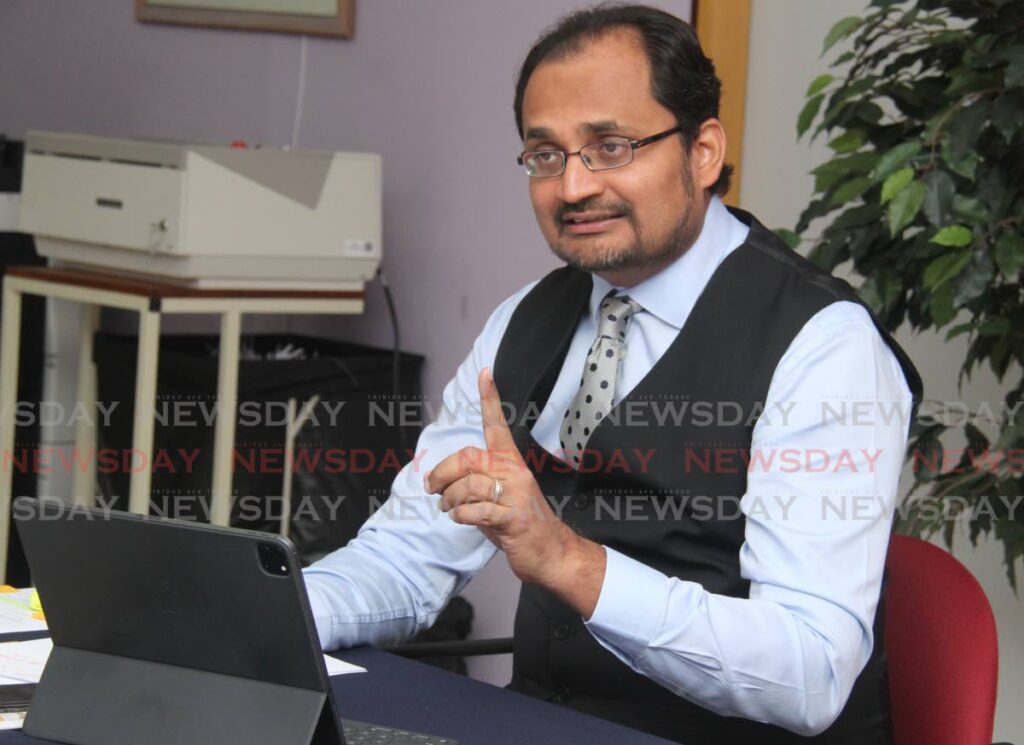Labour and the future

DINESH RAMBALLY
THE LABOUR movement in our country is one of our most enduring institutions, whose history pre-dates independence, and which can boast of continuously advocating and creating better lives for our people. Labour began to organise and agitate for better conditions early in the 20th century, first under the leadership of Capt Andrew Cipriani. The movement grew and became more militant in its strategies during and after the labour riots of 1937.
We all know this story: the intolerable working conditions in the oil belt, hunger marches of the 1930s, the murder of police corporal Charlie King, TUB Butler’s eventual arrest and internment during the world war, and Adrian Cola Rienzi’s formation of the Oilfields Workers' Trade Union (OWTU). The labour movement is also one of the earliest platforms of inter-ethnic solidarity.
The movement would again become militantly activist in the early independence period, in response to which the PNM government passed the Industrial Stabilisation Act, essentially outlawing strikes. And the movement continues its struggles to the present under the umbrellas of the Joint Trade Union Movement (JTUM) and the National Trade Union Centre (NATUC).
The journey is not smooth, as we all know: there is conflict within and without the movement. As a former judge of the Industrial Court and a supporter of labour, I respectfully offer the following suggestions to the labour movement for consideration as we navigate the 21st century.
The struggle continues, but the field of struggle has changed. Today, business and capital have upgraded their technology and their management strategies. We must consider how much labour has done the same. Take one example: the smartphone has allowed employers to be in touch with their employees continuously – evenings, weekends, holidays. As a result, business productivity has grown, along with profits. But have workers’ rewards been commensurately expanded?
With these issues in mind, I want to make three suggestions to trade unions to pursue for their workers’ benefits, outside of compensation: time, flexibility and family-oriented policies.
Although wages remain central to union advocacy, an equally important commodity in today’s world is time. Workers’ time is as valuable as money, and a great deal of it is wasted. Why not ask for the progressive time policies? Start with the four-day work week. Or what about the commute time being added to work hours?
The European Court of Justice in 2015 ruled that for workers without offices, travel time between jobs constituted work hours. A policy being debated in other jurisdictions is whether travel time to work should also count as work hours.
This might be one solution to our paralysing traffic situation. If these policies were proposed they could be accompanied by other progressive policies, like work flexibility: work-from-home arrangements, staggered work days, focusing on job outcomes rather than the amount of time spent at a desk. From the covid lockdowns we know distance work works, but employers have been reticent to implement.
And the final issue that I would like unions to focus on would be family policies. Society has changed. Single-parent households have increased, and single-earner households have decreased. Parents spend more time apart from their children, and usually have to make difficult choices for child care – especially during the long school holidays, which begin next month. Companies can provide relief for this by providing in-house daycare.
Especially for the last proposal, I can imagine the reaction in boardrooms – flat denials, many excuses why this is not possible or desirable. These are the same employers who speak of innovation, entrepreneurship, and transformative thinking. But keep in mind these suggestions are against a backdrop of already increased worker productivity because of technology.
In brief, employers are making 21st century profits while maintaining 20th century policies. They have no incentive to change. And this is where the labour movement come in: remind the executives and corporate boards that the profits and comforts they enjoy come from the hands of working people, and those hands are growing increasingly over-worked.
Again, it is with the greatest respect that I suggest to the labour movement that these areas, of workers’ family rights, better time conditions, flexible work arrangements, and worker dividends from increased productivity, are the new battlegrounds of this century.
These are general suggestions; policy debates require more detailed research and work. I pledge my help as a Member of Parliament and legal advocate to make this a reality.
Wishing our labour movement all the best in its continuing struggle for peace, bread and justice.
Dinesh Rambally is the Member of Parliament for Chaguanas West


Comments
"Labour and the future"